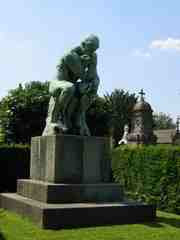
Philosophical and scientific roots
The study of psychology in philosophical context dates back to the ancient civilizations of Egypt, Greece, China, India, and Persia. Psychology began adopting a more clinical[2] and experimental[3] approach under medieval Muslim psychologists and physicians, who built psychiatric hospitals for such purposes.[4]In 1802, French physiologist Pierre Cabanis helped to pioneer biological psychology with his essay Rapports du physique et du moral de l'homme (On the relations between the physical and moral aspects of man). Cabanis interpreted the mind in light of his previous studies of biology, arguing that sensibility and soul are properties of the nervous system.Though the use of psychological experimentation dates back to Alhazen's Book of Optics in 1021,[3][5]psychology as an independent experimental field of study began in 1879, when Wilhelm Wundt founded the first laboratory dedicated exclusively to psychological research at Leipzig University in Germany, for which Wundt is known as the "father of psychology".[6] The year 1879 is thus sometimes regarded as the "birthdate" of psychology. The American philosopher William James published his seminal book, Principles of Psychology[7] in 1890, laying the foundations for many of the questions on which psychologists would focus for years to come. Other important early contributors to the field include Hermann Ebbinghaus (1850–1909), a pioneer in the experimental study of memory at the University of Berlin; and the Russian physiologist Ivan Pavlov (1849–1936) who investigated the learning process now referred to as classical conditioning.
No comments:
Post a Comment